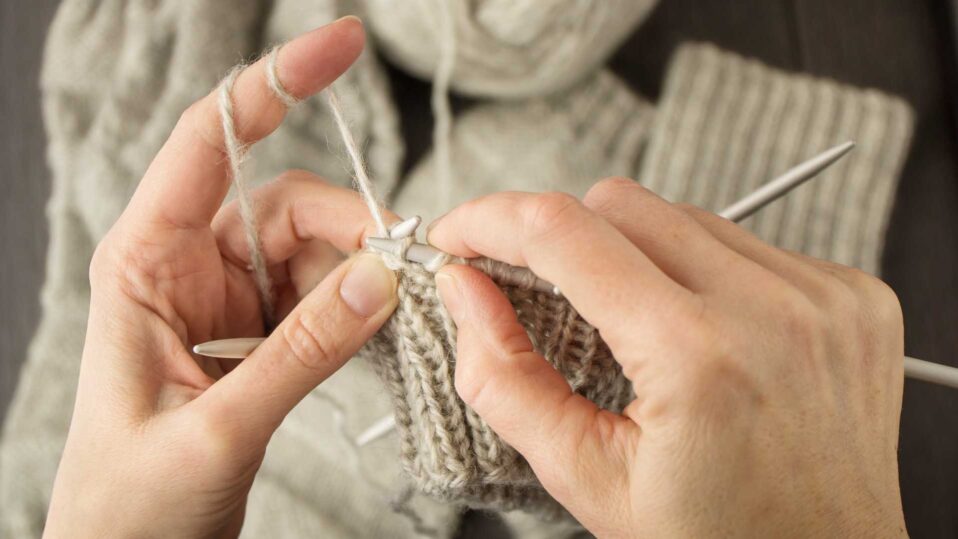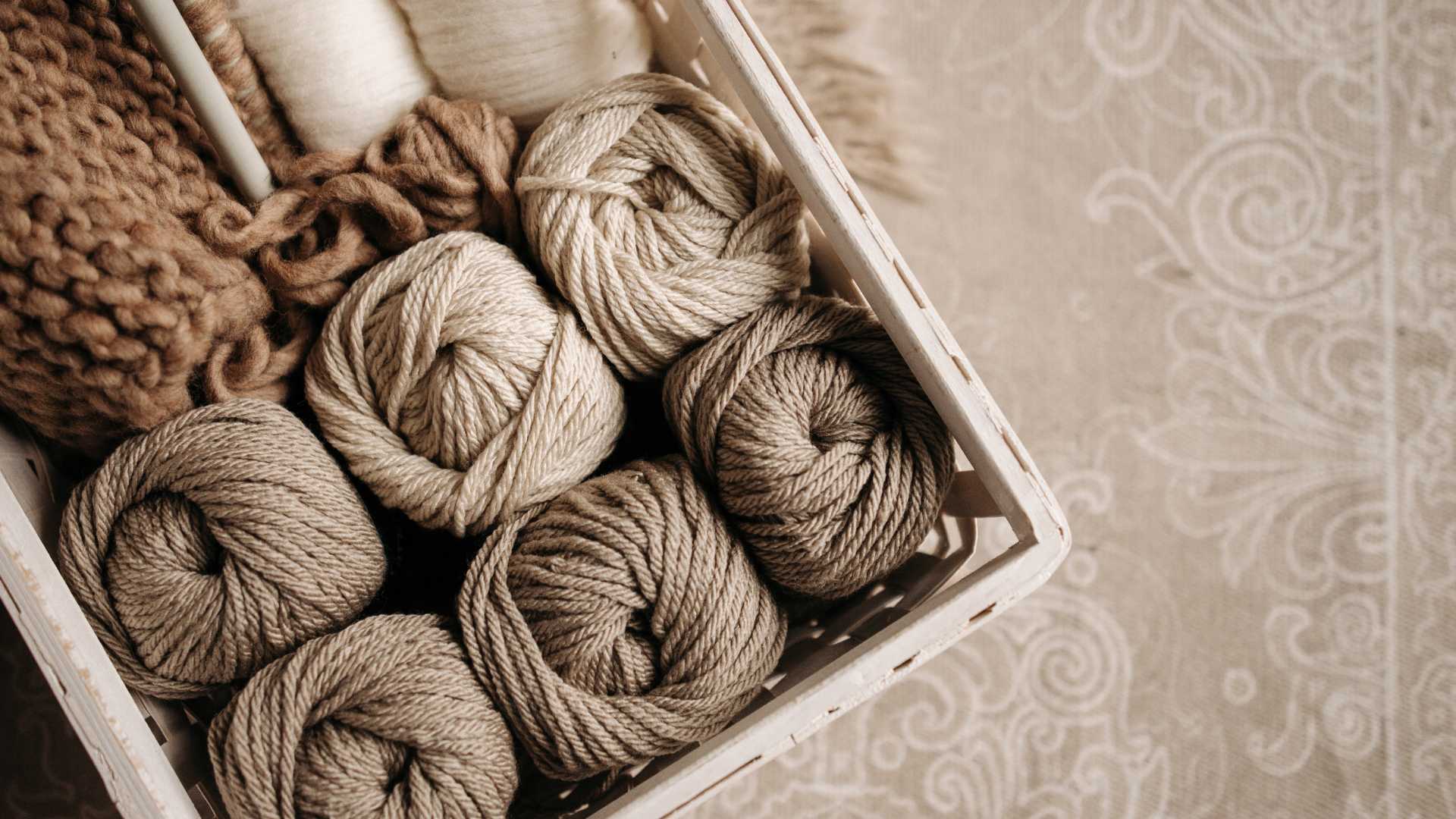Case study: the unexpected benefits of knitting for the mind

Oftentimes, knitting is simply perceived as a pleasant pastime, a hobby for relaxation and creativity. However, a deeper dive into this art form reveals it offers much more than just the pleasure of creating something beautiful with your hands. Recent studies have highlighted the unexpected mental health benefits of knitting, making it a truly beneficial tool for the mind. From honing cognitive skills to improving mental wellness, knitting has proven to be an impactful practice.
- 1 Knitting: A Cognitive Exercise
- 2 The Therapeutic Power of Knitting
- 3 Social Benefits of Group Knitting
- 4 Knitting: A Key Player in Occupational Therapy
- 5 Incorporating Knitting into Everyday Life
- 6 Enhancing Language Skills and Alleviating Chronic Pain through Knitting
- 7 Knitting and Crocheting: Reducing Stress and Cognitive Decline in Older Adults
- 8 Weaving the Threads of Well-being
Knitting: A Cognitive Exercise
Knitting isn’t merely about moving the needles and threading the yarn. It also involves concentration, calculation, pattern recognition, and hand-eye coordination. We can think of it as a cerebral workout that keeps the brain active and sharp.
Studies have shown that knitting can help maintain cognitive function as we age. In a program where senior citizens regularly engage in knitting sessions, participants showed improvements in their memory and mental alertness. It’s an interesting discovery that highlights how simple, enjoyable activities can contribute to mental health.
In addition to cognitive benefits, knitting also helps with learning in children. Knitting classes have become an element in some school curriculums as educators have noticed that students who knit demonstrate improved concentration and patience. Knitting is a multi-sensory experience, meaning it engages several areas of the brain simultaneously, which can help children’s cognitive development.
The Therapeutic Power of Knitting
Outside the classroom, knitting can also serve as a powerful tool for mental well-being. The rhythmic, repetitive movements and the focus required to follow a pattern can provide a sense of calm and control. For those feeling overwhelmed or stressed, knitting can act as a form of mindfulness meditation.
A study comprising a group of people with clinical depression found that knitting had a positive effect on their mental state. Regular knitting helped them to regain some control over their lives and reduced their feelings of sadness and anxiety. In some cases, knitting was even compared to yoga in its ability to help people unwind and find inner peace.
Social Benefits of Group Knitting
Knitting isn’t always a solitary activity. Joining a knitting group can be a great way to connect with others and foster a sense of community. The social benefits of group knitting are another aspect that contributes to mental health.
People who knit in groups often report reduced feelings of loneliness and increased feelings of purpose. The shared experience of creating something, combined with the camaraderie that comes from being part of a group, reinforces a sense of belonging and self-worth.
Knitting groups can often become supportive networks for people going through challenging times in their life. The social interaction involved in these group settings can boost happiness levels and provide a distraction from negative thoughts or stressors.
Knitting: A Key Player in Occupational Therapy
Knitting is increasingly being utilized as a tool in occupational therapy due to its numerous benefits. Occupational therapists have started to incorporate knitting into their therapeutic programs, especially for patients recovering from stroke or dealing with conditions like arthritis.
The fine motor control required in knitting can help improve hand dexterity and strength. For patients recovering from a stroke, knitting can be a therapeutic exercise that aids in the relearning of motor skills. Similarly, people dealing with arthritis can benefit from the gentle, repetitive motion, which can help maintain joint flexibility.
Incorporating Knitting into Everyday Life
Given the compelling evidence of knitting’s impact on mental health, it’s clear that this art form warrants a place in our daily lives. Whether it’s taking up knitting as a hobby, joining a knitting group for social interaction, or incorporating it as a therapeutic tool, the potential benefits to mental well-being are considerable.
The act of creating something beautiful from a simple ball of yarn can be incredibly satisfying. But beyond the tangible end product, the journey of knitting itself offers rewards in the form of mental stimulation, relaxation, social interaction, and even therapeutic benefits. All of this makes knitting more than just a pastime – it’s a valuable, multi-faceted tool for mental health and well-being.
Enhancing Language Skills and Alleviating Chronic Pain through Knitting
Knitting not only benefits cognitive function and mental health, but research reveals it can also enhance language skills and ameliorate chronic pain. These two aspects further solidify knitting as a holistic tool for overall well-being.
A study conducted in British Columbia discovered that young children who knit displayed improved language skills. The process of following knitting instructions requires children to read and comprehend complex sentences, improving their reading proficiency and language comprehension. The cognitive demand of knitting simultaneously engages different parts of the brain, stimulating language development.
Knitting also provides relief for those suffering from chronic pain. As individuals knit, they enter a “flow state,” a mental state where they are fully immersed and focused on the activity. This heightened concentration can help divert attention away from pain and discomfort. A three-year study involving older adults with chronic pain found that those who knitted reported a significant decrease in their pain levels.
Moreover, the repetitive motion of knitting can release serotonin, a neurotransmitter that plays a crucial role in mood regulation and pain perception. The knitting-induced increase in serotonin levels can therefore help mitigate both emotional distress and physical pain.
Knitting and Crocheting: Reducing Stress and Cognitive Decline in Older Adults
Knitting and crocheting are not just for passing time; they can also serve as effective stress-reducing activities for older adults. The rhythmic motions and focus required in these crafts can induce a meditative state, helping individuals relax and reduce stress.
Participating in these activities in small groups can further promote social interaction and a sense of community. Regular social interaction can minimize feelings of isolation often experienced by older adults, thus contributing positively to their mental health.
Furthermore, knitting and crocheting can reduce the risk of cognitive decline in older adults. These activities stimulate various parts of the brain, keeping it active and reducing the risk of memory loss and cognitive decline. A study involving three children and older adults found that those who regularly engaged in knitting and crocheting showed slower cognitive decline than those who did not participate in such activities.
Weaving the Threads of Well-being
The benefits of knitting extend far beyond creating beautiful items. From improving cognitive function and language skills to reducing chronic pain and stress, knitting offers a wide range of health benefits for individuals of all ages.
Joining a knitting group can provide a social outlet, especially for older adults, fostering a sense of community and reducing feelings of isolation. Furthermore, the incorporation of knitting in occupational therapy is proof of its therapeutic potential in improving fine motor skills and joint flexibility.
In a world where mental health issues are on the rise, knitting emerges as a simple, enjoyable, and effective tool to enhance mental well-being. The act of turning a simple ball of yarn into a piece of art can serve as a powerful symbol of our ability to create beauty and find peace in our lives, even amid challenges.
Whether you’re a novice or an experienced knitter, incorporating knitting into your daily routine can offer immense benefits. So pick up those needles, choose your favorite yarn and enjoy the journey of knitting. After all, it’s much more than a hobby; it’s a catalyst for improved mental health and overall well-being.


